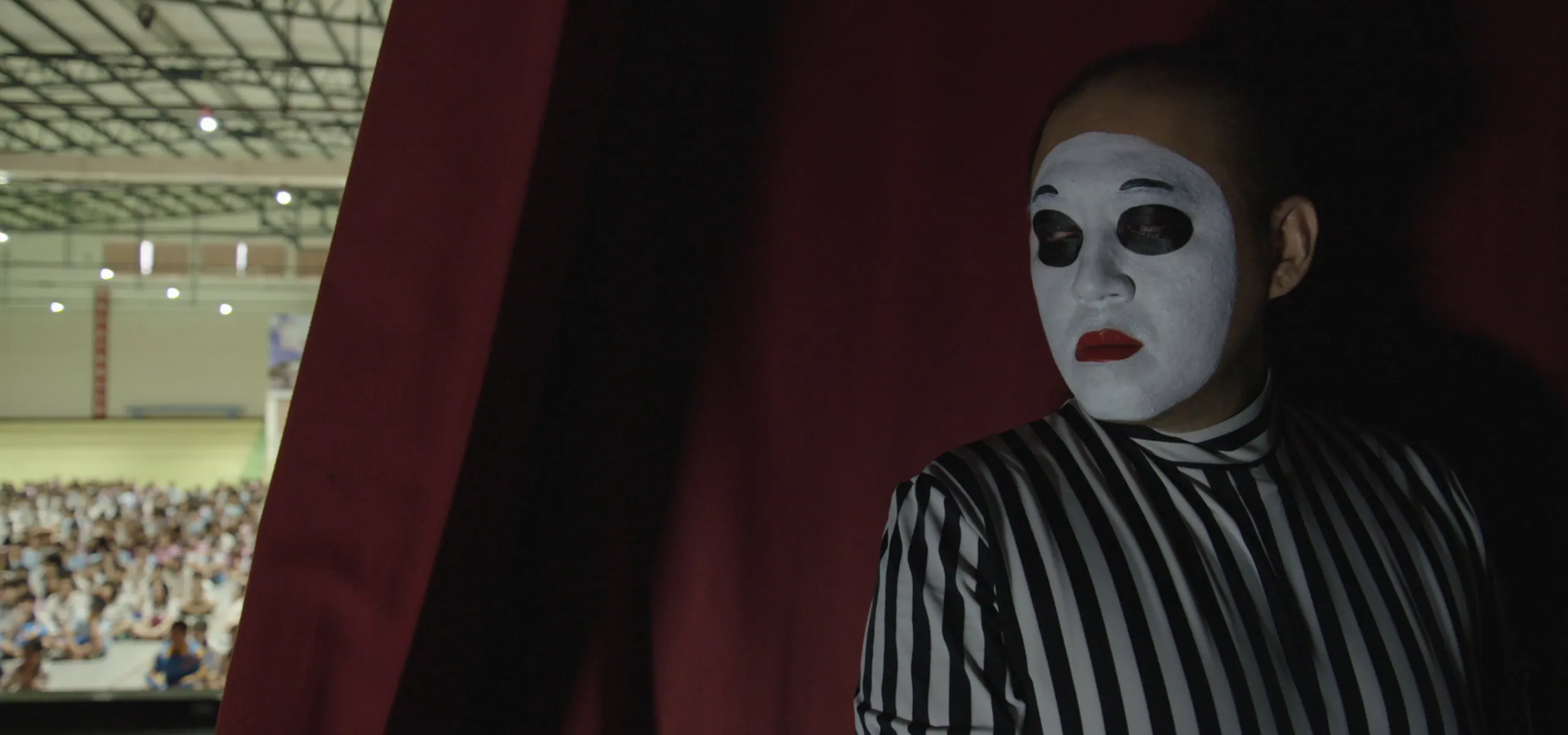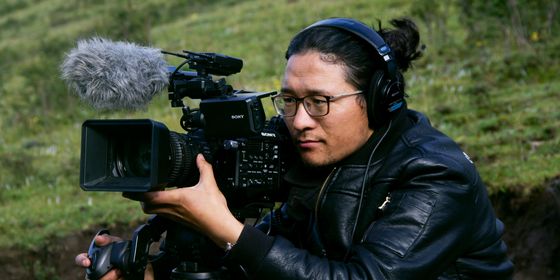A director explores the exploitative nature of documentary filmmaking in his latest work about childhood trauma
Sunteck Yao is a mime artist who lives in Taipei, while Tong Meimei is a psychotherapist over 1,200 kilometers away in Qingdao. These two seemingly unrelated individuals have little in common, except that they both suffer deep and lasting psychological pain from catastrophic childhood experiences.
They are also the subjects of Zhou Hao’s latest documentary All In (《孤注》), which premiered at the Shanghai International Film Festival earlier this year.
When Tong was 3 years old, her father took her to the hospital, left her in a hallway, and jumped off the building to his death. Later in life, Tong had a miscarriage before losing her husband in a car accident. Now working as a therapist, her job is to patiently listen to and help others work through their problems. But more than 50 years after her father’s suicide, she still wonders whether he would still be alive if she had been a better daughter.
At the age of 12, Yao got off a bus at the wrong stop. When he called his mother, she scolded him and told him to go to the police for help. An elderly man invited Yao to his home for a rest, before drugging and raping him. Now, Yao works as a mime performing for children, and often shares his story with the audience after each show. But he has kept the incident a secret from his family, in part not wanting them to feel guilty. Until their deaths, his parents knew nothing about the nightmare that had transformed their son’s life.
The camera follows Tong’s therapy sessions and her frequent arguments with her mother; Yao’s mime performances and his visits to the children he sponsors financially in rural Guangxi; and Zhou’s interviews with them both. On the surface, it seems that All In is about two people working to heal others while grappling with post-traumatic stress disorder (PTSD) themselves. But as the film reveals more and more of Zhou’s involvement, another issue surfaces, perhaps the real focus of the film: the relationship between the filmmaker and the subjects.
The name “documentary” often gives the illusion that this genre of films is nothing but a faithful record of events. The camera, and by extension the audience, seem to be hiding under a cloak of invisibility as it captures the subjects’ lives. But in fact, documentaries are created by filmmakers who receive consent from their subjects to shoot; who accompany their subjects, at least physically, in their moments of vulnerability; and who select footage to piece together through editing. In turn, for the subjects, the act of exposing themselves to the camera, the filmmaker, and the audience will also have an impact on themselves.
Having worked as a photojournalist for more than a decade before he started making documentaries, Zhou has won international accolades for depicting China’s social issues through a humanistic lens. His documentary Cotton (2014) follows four individuals in the labor-intensive cotton industry across the country, while Chinese Mayor (2015) captures a high-ranking official’s controversial efforts to transform the former mining city of Datong into a cultural destination.
However, getting a mayor’s permission to film at Party meetings and construction sites is different from earning Yao and Tong’s trust to share their most painful memories. The latter is so much more personal and has the potential of causing more harm to the subjects.














